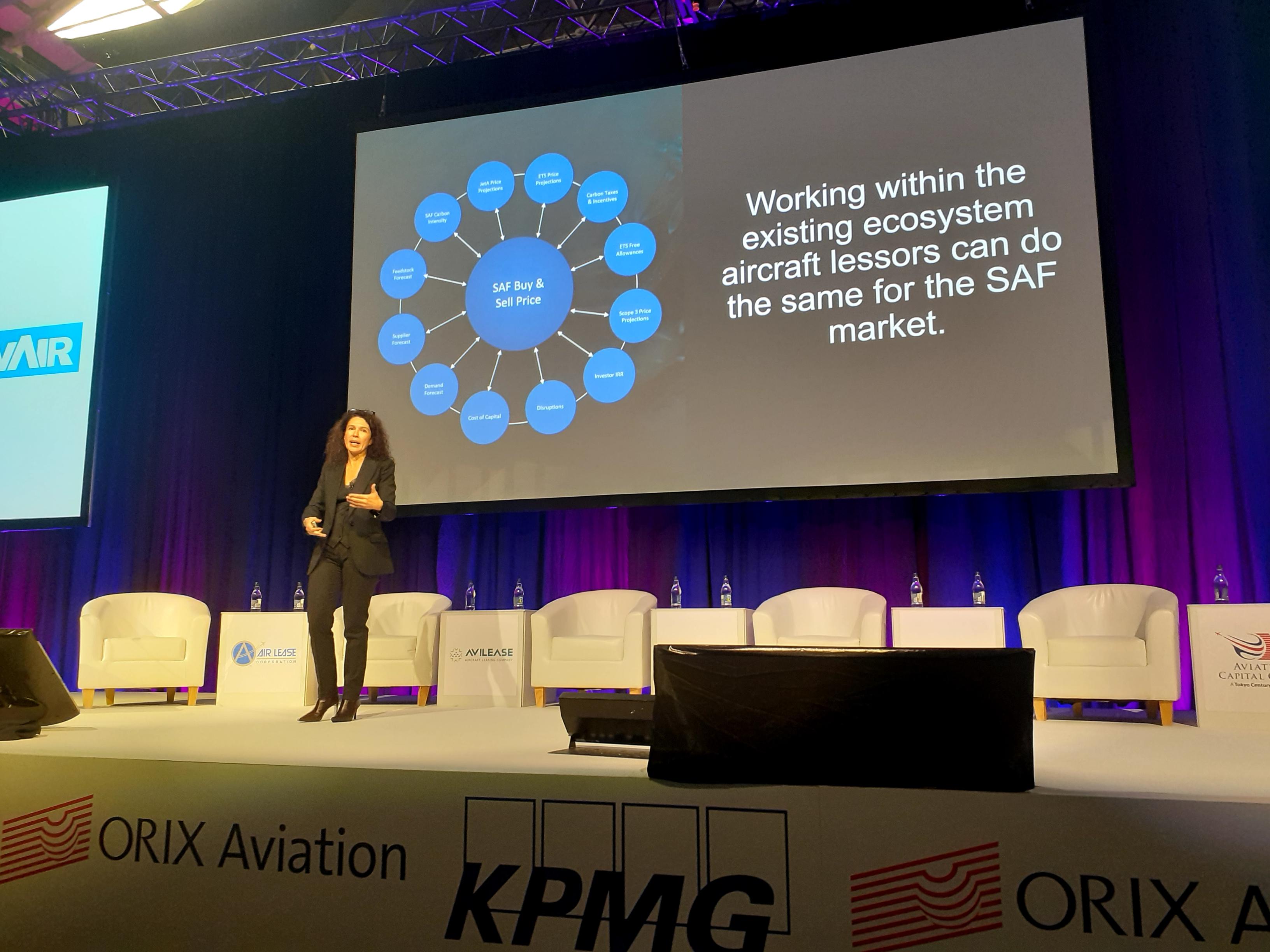With uncertainty abounding about securing sufficient supplies of sustainable aviation fuel (SAF) to satisfy demand, Natasha Mann, CEO of Future Energy Global, highlighted that “capital is not flowing right now in the SAF market because returns on investment are yet to be seen”.
Speaking at Airline Economics’ Sustainable Aviation Fuel and carbon financing conference day in Dublin, Mann noted: ""The only reason right now an airline would purchase SAF is for carbon accounting or mandates,” she said, adding that lessors have a role to play in leveraging the momentum of SAF as it inevitably impacts an airline’s credit rating risk.
With lessors owning over 50% of the global airline fleet, the group also represents one of the biggest stakeholders in the sector (with over $200bn dollars of exposure managed in Ireland alone). Fuel, one of an airline’s most significant costs (including capital costs), is notoriously volatile. However, the advent of over 300 decentralised jet fuel sources now give liquidity providers the power to play a role – even locally – in how the aviation industry will be fuelled tomorrow.
Although evaluating the emerging and ongoing climate risk (such as the impact of rising temperatures on airport operations) on the value of an asset is an “almost impossible task,” future potential losses can be mitigated if lessors find another asset to complement their portfolio. These could consist of intangible assets such as carbon credits and SAF, highlights Mann.
Although lessors and traders typically work on a timeframe of three years out, she says, with SAF gains up to a decade away, there are strategies to adopt to mitigate risk. Although SAF is a static asset (typically located at an airport) and cannot be traded between airlines like aircraft, it can be carried in these mobile assets. Additionally, if a lessor has pre-purchased SAF and its intended end user has become insolvent, the fuel can easily be re-allocated to another airline in its portfolio. This list is not exhaustive, and Future Energy Global has been studying several such risk mitigators over the last 18 months.
“You as lessors can actually purchase SAF from the future,” concluded Mann, pointing out the transaction's vital role in securing SAF producers’ capital. (Typically, SAF manufacturers are diverse in nature and scope, producing up to 300 products with varying characteristics; necessitating funding from venture capitalists charging higher percentage rates or taking a higher share of the equity.) However, bringing revenue to SAF producers as non-dilutive capital will only help scale a solution that can ultimately benefit all involved.
The role of lessors in helping scale SAF

